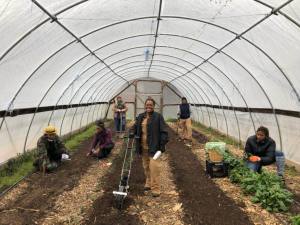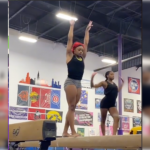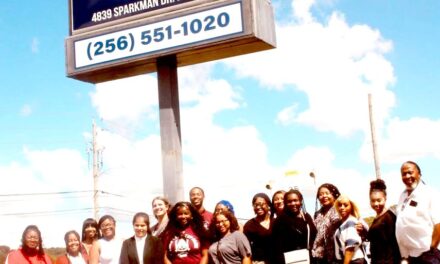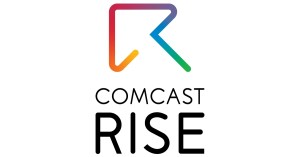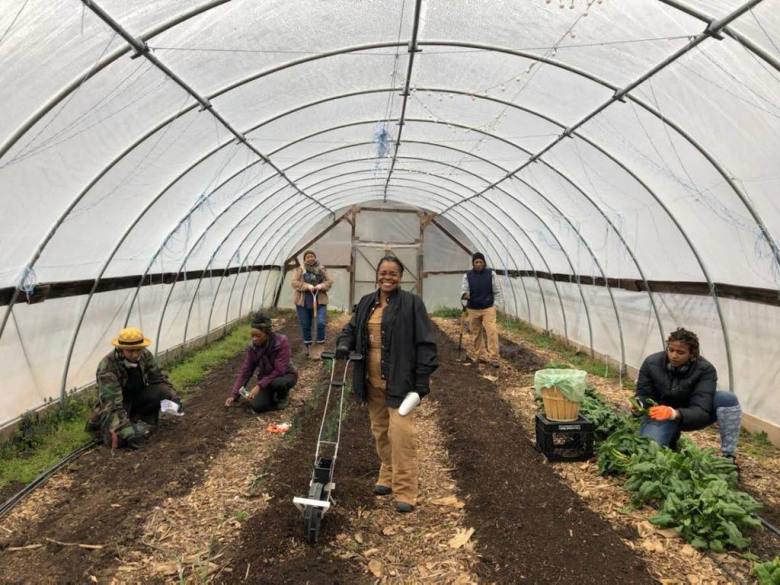 By Beverly Richards
By Beverly Richards
Special to the AFRO
During the early part of the twenty-first century, Black-owned farms were in abundance. Over the decades, ownership has depleted immensely. According to the 2017 Census of Agriculture, BIPOC (Black and Indigenous People of Color) farmers and landowners are grossly underrepresented. Black Americans identify as just 1% of rural land nationwide, compared to approximately 95% ownership by White farmers.

There is, however, a growing crusade to maintain the legacy of farming and land ownership in the heart of major cities called urban agriculture. Located in the heart of Reservoir Hill, Kimberly Raikes decided to create Whitelock Community Farm, to grow and provide an oasis of healthy foods and to preserve a tradition. “I want to educate the next generations of what their heritage actually is ,” said Kimberly. The farm is also a vehicle to get more youth and adults involved “in understanding what you’re eating and why you’re eating it.”
Tired of the corporate rat race, Kimberly decided to get back to who she is inherently. She wanted to engage more in the land. “I needed to go back to farming and learning what I was putting in my body.” Kimberly also wanted to help other people understand the effects of fast and processed food. “When you’re putting unhealthy things in your body, you’re causing your body to quickly deteriorate,” she added.
The urban agriculturalist and her volunteers grow varieties of vegetables at Whitelock Farm. They produce lettuce, from arugula to romaine, three varieties of kale, collards and green peppers. Five different varieties of hot peppers, bell peppers and Kings sweet potatoes can also be found at the farm.
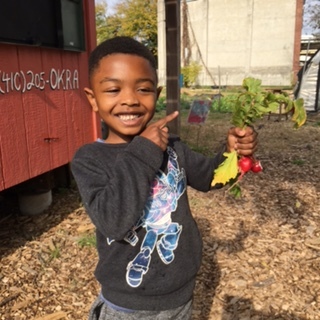
“It’s been a lot of fun honestly. And being able to educate the community is amazing. I have this wonderful little ambassador. He’s only two, Aiden. He’s my special taste tester of my vegetables. When they come in, I let him pull the leaf off, taste it. If he gives me thumbs up, it’s good,” she mused. “He and his brother Noah made a video to teach other people what the vegetable was that he was picking for that day; and why it’s important and why they should eat them. And that’s why urban farms are important,” she continued.
Urban farms are essential to Raikes, and she has made it her personal mission to mentor other hopeful city farmers. Most of the volunteers are encouraged to first get training through Future Harvest A Chesapeake Alliance for Sustainable Agriculture (Future Harvest CASA), a network of farmers, agricultural professionals, landowners and consumers living and working in the Chesapeake region, before engaging with the land.
“I encourage them to look up the program because it’s free and you get a complete understanding of what farming is.”
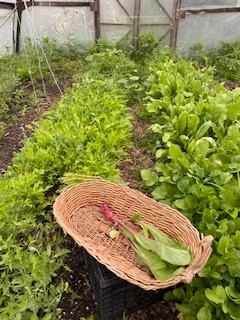
She hopes one day to see every urban home that does not have a yard to have a tower to grow their own lettuce and grains. And for homeowners with a yard, “I would love to see them utilizing their own bodies and their own creativity to make whatever vegetables,” she concluded.
Help us Continue to tell OUR Story and join the AFRO family as a member – subscribers are now members! Join here!
The post Baltimore’s urban agriculturist invites others to learn appeared first on AFRO American Newspapers .

